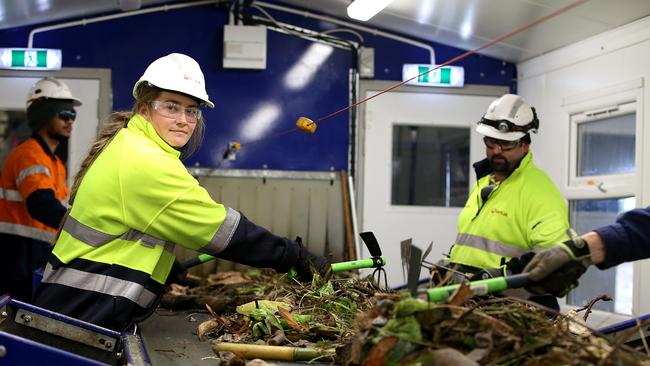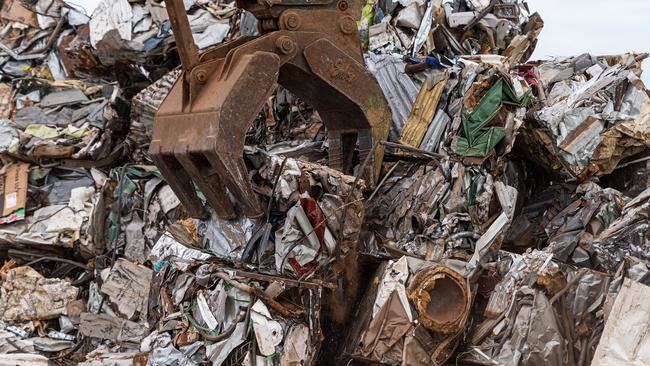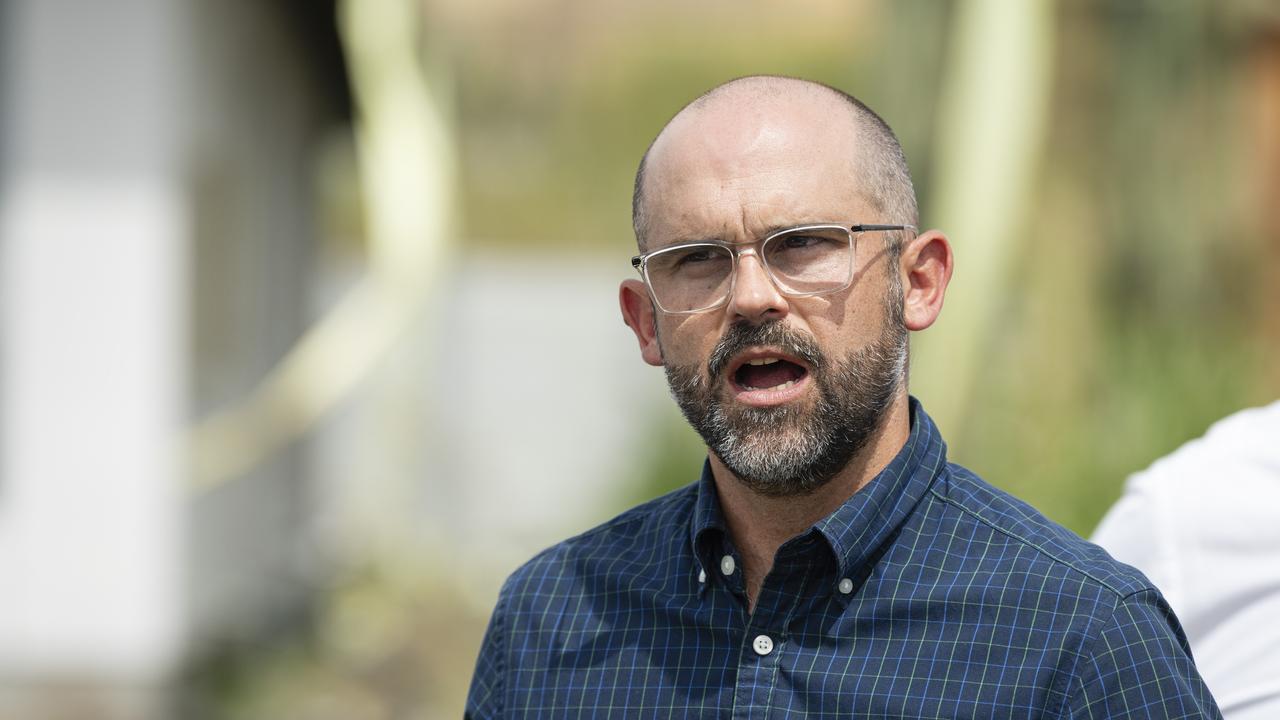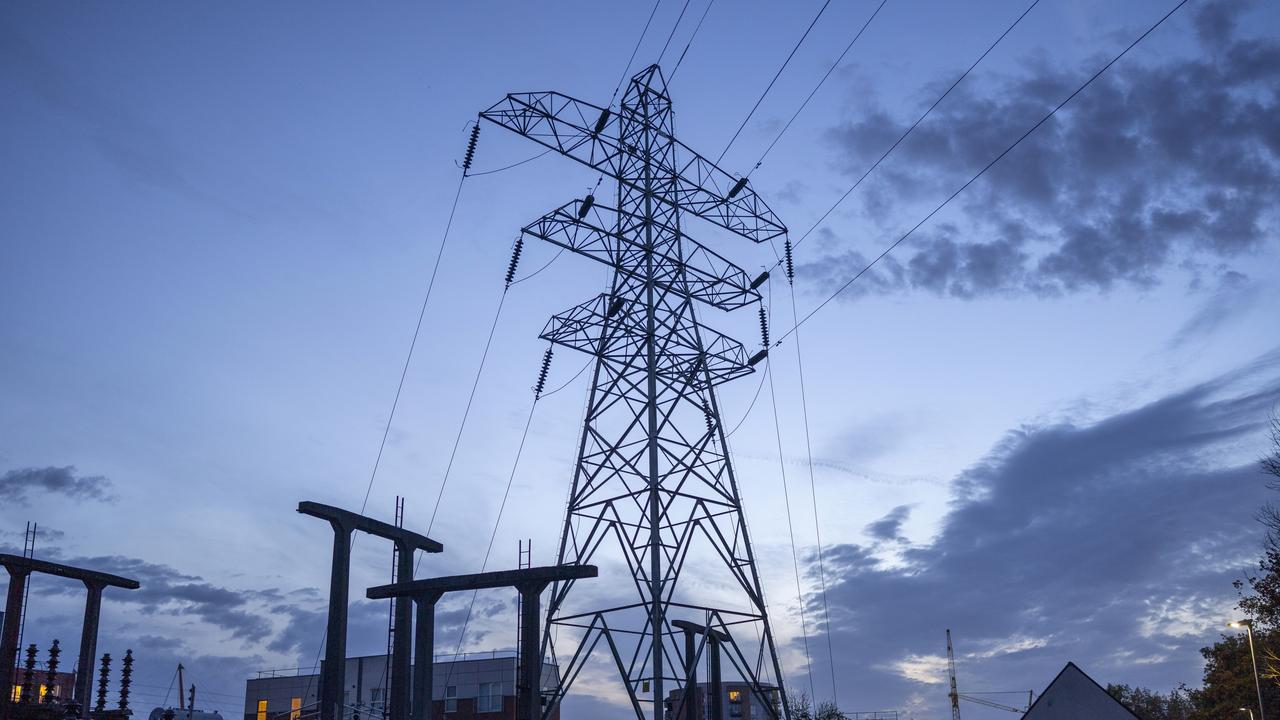Move to a circular economy ‘a huge opportunity’ for waste managment
The transition to a circular economy creates ‘a huge opportunity’ for Australia, waste management group Veolia says.

Australia could become a world leader in positioning industry and the economy for growth while reducing carbon emissions, but has some catching up to do first, the local boss of global waste management group Veolia says.
Veolia Australia and New Zealand CEO Richard Kirkman said Australia could continue mining, manufacturing and managing its resources while decarbonising and creating a circular economy.
“We are a bit behind, but there’s a huge opportunity to overtake,” Mr Kirkman told The Australian.
“Australia talks about wanting to be a superpower in solar and renewables. You can also be the world leader in ecological transformation, in transforming industry so that it grows but at the same time improves its environmental performance.”
Mr Kirkman said it was possible to tackle waste, decarbonise and reduce pollution while still growing industry and the economy.
“I don’t think the answer for Australia or anywhere really is what some people think it is, which is to stop using things, to stop growing and to stop creating wealth for Australian citizens and pushing forward with jobs and betterment for society,” he said.
“We can grow and we can also decarbonise, depollute and create a circular economy at the same time.”
Mr Kirkman, who joined Veolia as an environmental engineer in 1994 and became its Australian CEO in 2020, said there was “a massive appetite” for a circular economy in Australia.
“People are really keen to invest in the circular economy.
“I’ve got people knocking on my door. They want a joint venture, they want to take a big piece of the asset cost.
“A lot of the facilities we build will be funded by private finance.
“It’s the future of waste. We’ve seen the transition happen elsewhere and the profits generated from it, so people want to invest in that. There’s no shortage of investment here, by all sorts of companies.”

Federal, state and territory environment ministers last year agreed to work towards a circular economy by 2030. This involves recycling, remanufacturing or re-using products after they have served their initial purpose, to reduce waste and pollution.
Mr Kirkman said he took a pragmatic approach to achieving a circular economy, saying while many products could be recycled or used as an energy source, landfill was an appropriate solution in some cases.
“Whether we achieve a full circular economy by 2030, I don’t think matters.
“What matters is let’s keep changing the system and putting in projects that benefit industry, benefit cities, benefit local authorities – financially and environmentally – as fast as we can and see where we get to. We’re going to make a big inroad because all the policies are in place and the incentives are in place.”
Veolia, a global water, waste and energy management group, operates about 100 energy-from-waste around the world.
It operates a food-waste-to-energy facility in NSW, and Mr Kirkman said there was growing interest in creating energy from general wastes that would have gone to landfill.
Mr Kirkman said Veolia was investing “a few billion dollars” in waste treatment assets across Australia over several years.
“It’s not only us investing; in terms of total investment in waste infrastructure across Australia, it’s billions of dollars over the next 10 years,” he said.



